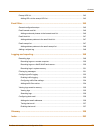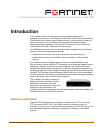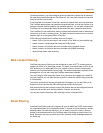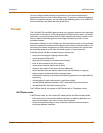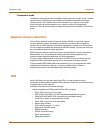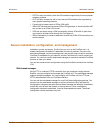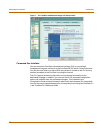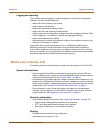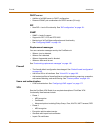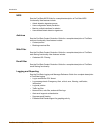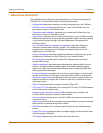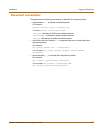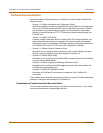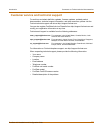
Introduction Logging and reporting
FortiGate-100 Installation and Configuration Guide 19
Logging and reporting
The FortiGate supports logging of various categories of traffic and of configuration
changes. You can configure logging to:
• report traffic that connects to the firewall,
• report network services used,
• report traffic permitted by firewall policies,
• report traffic that was denied by firewall policies,
• report events such as configuration changes and other management events, IPSec
tunnel negotiation, virus detection, attacks, and web page blocking,
• report attacks detected by the NIDS,
• send alert email to system administrators to report virus incidents, intrusions, and
firewall or VPN events or violations.
Logs can be sent to a remote syslog server or to a WebTrends NetIQ Security
Reporting Center and Firewall Suite server using the WebTrends enhanced log
format. Some models can also save logs to an optional internal hard drive. If a hard
drive is not installed, you can configure most FortiGates to log the most recent events
and attacks detected by the NIDS to shared system memory.
What’s new in Version 2.50
This section presents a brief summary of some of the new features in FortiOS v2.50:
System administration
• Improved graphical FortiGate system health monitoring that includes CPU and
memory usage, session number and network bandwidth usage, and the number of
viruses and intrusions detected. See “System status” on page 86.
• Revised antivirus and attack definition update functionality that connects to a new
version of the FortiResponse Distribution network. Updates can now be scheduled
hourly and the System > Update page displays more information about the current
update status. See “Updating antivirus and attack definitions” on page 91.
• Direct connection to the Fortinet tech support web page from the web-based
manager. You can register your FortiGate unit and get access to other technical
support resources. See “Registering FortiGate units” on page 101.
Network configuration
• New interface configuration options. See “Configuring interfaces” on page 109.
• Ping server and dead gateway detection for all interfaces.
• HTTP and Telnet administrative access to any interface.
• Secondary IP addresses for all FortiGate interfaces.
Routing
• Simplified direction-based routing configuration.
• Advanced policy routing (CLI only).



